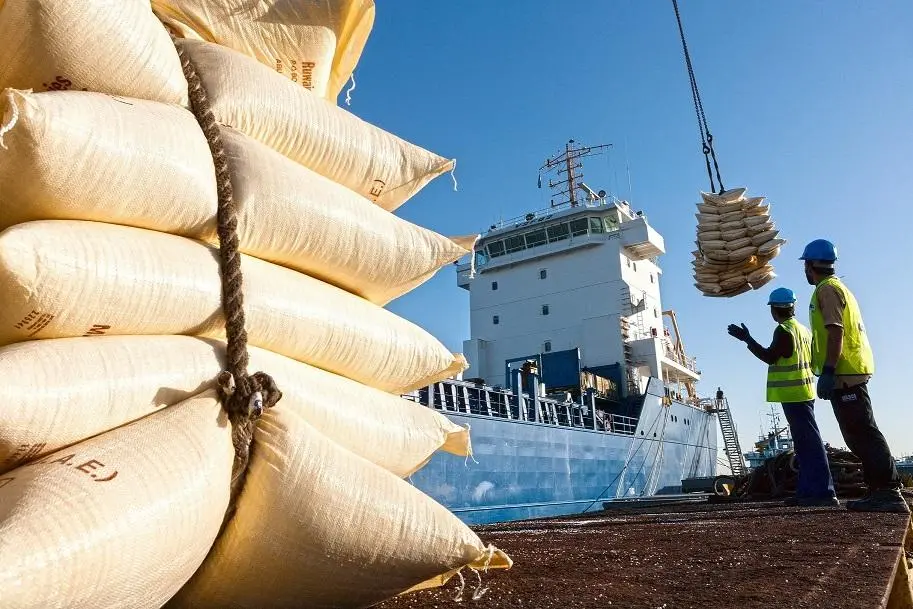PHOTO
The combined gross domestic product (GDP) growth of Middle East countries is set to rebound this year on the back of increased spending by governments and higher oil revenues, according to the latest Economic Insight report from accountancy body the Institute of Chartered Accountants in England and Wales (ICAEW).
The Q3 report, which was produced for ICAEW by Oxford Economics, predicts the combined growth rate for countries across the Middle East (excluding North Africa) will reach 2.4 percent, up from 0.7 percent in 2017.
It said the higher oil price would improve governments' fiscal and external balances.
Yet despite the improving outlook, the report also warned there are downside risks, such as rising interest rates and the impact that a trade war could have on the global economy and the demand for oil.
It said that oil prices are likely to average around $78 per barrel during the second half of 2018, and $74.50 for the full year, which means that Bahrain and Saudi Arabia are likely to run significant deficits, citing recent IMF fiscal breakeven oil prices of $113 per barrel for Bahrain, and $87.90 for Saudi. Oman and the United Arab Emirates (UAE) follow with breakeven prices of $77.10 and $71.50 respectively, while both Kuwait and Qatar only need relatively low prices of $48.10 and $47.10 to achieve fiscal breakeven respectively.
For Saudi Arabia, the report predicts GDP growth of 2.1 percent this year, after the economy shrank by 0.7 percent last year, according to IMF figures.
But although the country has made progress with social reforms, the report warns that the economy's fortunes remain highly correlated to oil, noting that the kingdom still suffers from a high unemployment rate among Saudis and that it needs to attract more foreign direct investment to support its economic diversification plans.
In a press release accompanying the report, ICAEW's director for the Middle East, Africa and South Asia region, Michael Armstrong, said Saudi Arabia was "on the right track" to economic diversification, adding that the inclusion of the country's stock market onto global emerging market indices would "definitely help in attracting foreign investment, which in turn will support the expansion of the private sector’s role in generating output and creating jobs”.
For Bahrain, however, the picture looks somewhat bleaker. Not only is its fiscal breakeven well above current oil prices, it still relies on oil for about 75 percent of revenues, Mohamed Bardastani, ICAEW economic advisor and a senior economist for the Middle East at Oxford Economics, told Zawya. Bahrain’s economy grew by 3.8 percent last year, but is set to slow to 2.6 percent this year as the pace of investment in the country slows, before recovering to a forecasted 2.8 percent for both 2019 and 2020.
Bardastani added that persistent budget deficits - run up even when oil prices were above $100 per barrel - has meant that Bahrain's debt is now approaching 90-100 percent of its GDP.
"Also, our projection for fiscal deficits going forward is over the short-to-medium that the government is still going to have fiscal deficits. I think Bahrain is in a very difficult position financially," Bardastani said in a phone interview on Wednesday.
Although the government is attempting to raise additional revenues through measures such as the implementation of VAT, due at the end of this year, it is still facing deficits and cutting spending will be difficult, he argued, the bulk of its spending is on essential services such as healthcare, education and defence needed to keep the country running.
"For 2018, around 90 percent is recurrent expenditure," Bardastani said.
The UAE, meanwhile, is enjoying a much healthier year in 2018, Bardastani said. In 2017, the economy expanded by 0.8 percent, which was the slowest rate of growth for nearly eight years, but this year overall GDP growth should increase to 2 percent, spurred by an increase in non-oil growth of 3 percent.
Bardastani attributes this to expansionary budgets both by the UAE federal government (up 5.6 percent) and increases by individual emirates, with expenditure in Dubai rising by 19.5 percent as it increased capital spending on projects related to Expo 2020.
"Our view is that things are still challenging, but they are much better than last year and we do see the economy accelerating compared to last year," Bardastani said.
Further reading:
- UAE central bank trims 2018 GDP growth forecast to 2.3%
- Saudi Arabia on track for 1.9% GDP growth
- Saudi credit growth to pick up this year: central bank official
- Bahrain's currency peg likely to remain intact, but kingdom's banks face tough times ahead
- Egypt's GDP to expand 5.1% in FY 2019, 4.9% in FY 2020: FocusEconomics
(Reporting by Michael Fahy; Editing by Shane McGinley)
(michael.fahy@thomsonreuters.com)
© ZAWYA 2018




















